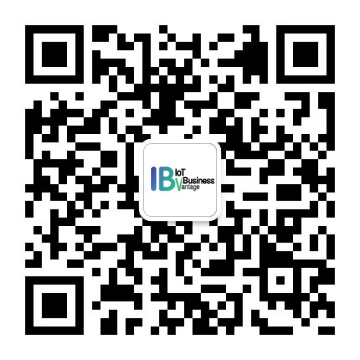智能摄像机 UI 业务包
更新时间:2025-11-11 08:40:52下载pdf
本文介绍了智能摄像机(IPC)相关的业务包,不同的业务包有不同的功能,您可以根据自己的需求加载。
- 使用智能摄像机 UI 业务包前,请认真阅读 UI 业务包框架接入。
- 建议您整体接入 UI 业务包。如果只是调用 UI 业务包某个面板的入口,可能存在上下文逻辑不对称风险。
智能摄像机 UI 业务包
智能摄像机 (IPC) UI 业务包 (ThingSmartCameraPanelBizBundle) 是基于 智能生活 App SDK 开发的一系列摄像机功能相关的面板 SDK。
功能说明
业务包主要包括以下功能:
- 预览面板
- 回放面板
- 云存储面板
- 消息中心面板
- 相册面板
- 设置面板
接入组件
-
在
Podfile文件中加入以下代码:source "https://github.com/tuya/tuya-pod-specs" source 'https://cdn.cocoapods.org/' platform :ios, '11.0' target 'your_target_name' do # 添加摄像机面板业务包 pod 'ThingSmartCameraPanelBizBundle' end -
然后在项目根目录下执行
pod update命令,通过 CocoaPods 集成第三方库。CocoaPods 的使用请参考 CocoaPods Guides。 -
在工程的
info.plist文件中添加需要的权限声明。业务包中封装了一系列 RN(React Native)接口供面板调用,其中会涉及到部分苹果隐私权限的声明。
- 如果接入的设备面板有使用图片相关的权限,例如 相册,则需要添加:
NSPhotoLibraryAddUsageDescription - 如果接入的设备面板有使用到麦克风的权限,例如 摄像机对讲,则需要添加:
NSMicrophoneUsageDescription
- 如果接入的设备面板有使用图片相关的权限,例如 相册,则需要添加:
服务协议
业务包实现 ThingCameraProtocol 协议以提供服务。在 ThingModuleServices 组件中查看 ThingCameraProtocol.h 协议文件内容为:
#import <UIKit/UIKit.h>
@class ThingSmartDeviceModel;
@protocol ThingCameraProtocol <NSObject>
/**
获取摄像机 Native 面板,已废弃
@param devId 摄像机设备的 devId
@param uiName 摄像机设备的 uiName,不同的 uiName 对应不同版本的面板 为 deviceModel 里的 uiName 属性
*/
- (UIViewController *)viewControllerWithDeviceId:(NSString *)devId uiName:(NSString *)uiName DEPRECATED_MSG_ATTRIBUTE("viewControllerWithDeviceId:uiName: is deprecated, use `getPanelViewControllerWithDeviceModel:initialProps:contextProps:completionHandler:` in `ThingPanelProtocol` instead");
@optional
/**
跳转摄像机回放面板
@param deviceModel 摄像机设备
*/
- (void)deviceGotoCameraNewPlayBackPanel:(ThingSmartDeviceModel *)deviceModel;
/**
跳转摄像机云存储面板
@param deviceModel 摄像机设备
*/
- (void)deviceGotoCameraCloudStoragePanel:(ThingSmartDeviceModel *)deviceModel;
/**
跳转摄像机消息中心面板
@param deviceModel 摄像机设备
*/
- (void)deviceGotoCameraMessageCenterPanel:(ThingSmartDeviceModel *)deviceModel;
/**
跳转摄像机相册面板
@param deviceModel 摄像机设备
*/
- (void)deviceGotoPhotoLibrary:(ThingSmartDeviceModel *)deviceModel;
@end
依赖服务
业务包主要会依赖如下几个协议:ThingSmartHomeDataProtocol、ThingOTAGeneralProtocol。
-
ThingSmartHomeDataProtocol:提供加载设备面板所需的当前家庭信息,为 必须实现 的协议。
/** 获取当前的家庭,当前没有家庭的时候,返回 nil。 @return ThingSmartHome */ - (ThingSmartHome *)getCurrentHome; -
ThingOTAGeneralProtocol:进入设备面板时,提供检查设备固件更新的事件。实现如下方法用于检查固件升级:
/** 检查设备固件更新,如果有更新会显示展示出固件更新提示 @param deviceModel 需要检查固件升级的设备 @param isManual 是否手动检测升级 @param theme 主题色 YES: 手动检测升级,检测时弹出 loading 框。当有固件新版本时(检测升级、强制升级、提醒升级),显示 OTA VC。 NO: 自动检测升级,检测时不弹出 loading 框。当有强制升级时、提醒升级时,弹出固件升级提示,点确定后显示 OTA VC。 */ - (void)checkFirmwareUpgrade:(ThingSmartDeviceModel *)deviceModel isManual:(BOOL)isManual theme:(ThingOTAControllerTheme)theme;
注意事项
- 使用任何接口之前,务必确认该设备在当前用户下。
- 此接口,只适用于摄像机设备调用,即
deviceModel.category为sp类型的设备。 - 调用业务包逻辑前,要先实现
ThingSmartHomeDataProtocol中的协议方法getCurrentHome。 - 此业务包,与之前的
TuyaSmartCameraPanelSDK互斥,二者不能共存。迁移之前,请参考 业务包迁移。
Objective-C
#import <ThingSmartBizCore/ThingSmartBizCore.h>
#import <ThingModuleServices/ThingSmartHomeDataProtocol.h>
- (void)initCurrentHome {
// 注册要实现的协议
[[ThingSmartBizCore sharedInstance] registerService:@protocol(ThingSmartHomeDataProtocol) withInstance:self];
}
// 实现对应的协议方法
- (ThingSmartHome *)getCurrentHome {
ThingSmartHome *home = [ThingSmartHome homeWithHomeId:@"当前家庭 id"];
return home;
}
Swift
import ThingSmartDeviceKit
class ThingActivatorTest: NSObject,ThingSmartHomeDataProtocol{
func test() {
ThingSmartBizCore.sharedInstance().registerService(ThingSmartHomeDataProtocol.self, withInstance: self)
}
func getCurrentHome() -> ThingSmartHome! {
let home = ThingSmartHome.init(homeId: 111)
return home
}
}
查看预览面板 (UIViewController)
摄像机原生预览面板包括视频实时预览、切换清晰度、控制声音开关、截图、录制、对讲、移动侦测、PTZ 方向控制、添加或删除收藏点、巡航控制等功能。关于实时预览面板,可参考 设备控制 UI 业务包。
IPC RN 面板业务包
IPC RN 业务包(ThingSmartCameraRNPanelBizBundle)是基于 智能生活 App SDK 开发的一系列摄像机功能相关的 RN(React Native)面板业务包。
使用 IPC RN 面板业务包前,您需要集成设备控制 UI 业务包,详情请参考 设备控制 UI 业务包。
功能说明
业务包主要包括以下功能:
- 预览面板
- 回放面板
- 云存储面板
- 消息中心面板
- 相册面板
- 设置面板
接入组件
-
在
Podfile文件中加入以下代码:source "https://github.com/tuya/tuya-pod-specs.git" source 'https://cdn.cocoapods.org/' target 'your_target_name' do # 添加面板控制业务包。 pod 'ThingSmartPanelBizBundle' # 添加摄像机面板业务包,接入 RN 页面业务包的同时,也接入该业务包,使得原生相册等功能也可以正常使用。 pod 'ThingSmartCameraPanelBizBundle' # 添加摄像机 RN 面板业务包。 pod 'ThingSmartCameraRNPanelBizBundle' end -
然后在项目根目录下执行
pod update命令,通过 CocoaPods 集成第三方库。CocoaPods 的使用请参考 CocoaPods Guides。 -
在工程的
info.plist文件中添加需要的权限声明。业务包中封装了一系列 RN 接口供面板调用,其中会涉及到部分苹果隐私权限的声明。
- 如果接入的设备面板有使用图片相关的权限,例如 相册,则需要添加:
NSPhotoLibraryAddUsageDescription - 如果接入的设备面板有使用到麦克风的权限,例如 摄像机对讲,则需要添加:
NSMicrophoneUsageDescription
- 如果接入的设备面板有使用图片相关的权限,例如 相册,则需要添加:
使用说明
业务包实现 ThingPanelProtocol 协议以提供服务。在 ThingModuleServices 组件中 ThingPanelProtocol.h 协议文件内容包括:
#import <UIKit/UIKit.h>
@protocol ThingPanelProtocol <NSObject>
/**
* 获取设备面板控制器
* @param deviceModel 设备模型
* @param initialProps 自定义初始化参数,会以 'extraInfo' 为 key 设置进 RN 应用的 initialProps 中
* @param contextProps 自定义面板上下文,会以 'extraInfo' 为 key 设置进 Panel Context 中
* @param completionHandler 回调返回视图控制器
*/
- (void)getPanelViewControllerWithDeviceModel:(ThingSmartDeviceModel *)deviceModel
initialProps:(nullable NSDictionary *)initialProps
contextProps:(nullable NSDictionary *)contextProps
completionHandler:(void (^ _Nullable)(__kindof UIViewController * _Nullable panelViewController, NSError * _Nullable error))completionHandler;
@end
依赖服务
业务包主要会依赖如下几个协议:ThingSmartHomeDataProtocol、ThingOTAGeneralProtocol。
-
ThingSmartHomeDataProtocol:提供加载设备面板所需的当前家庭信息,为 必须实现 的协议。
/** 获取当前的家庭,当前没有家庭的时候,返回 nil。 @return ThingSmartHome */ - (ThingSmartHome *)getCurrentHome; -
ThingOTAGeneralProtocol:进入设备面板时,提供检查设备固件更新的事件。实现如下方法用于检查固件升级:
/** 检查设备固件更新,如果有更新会显示展示出固件更新提示 @param deviceModel 需要检查固件升级的设备 @param isManual 是否手动检测升级 @param theme 主题色 YES: 手动检测升级,检测时弹出 loading 框。当有固件新版本时(检测升级、强制升级、提醒升级),显示 OTA VC。 NO: 自动检测升级,检测时不弹出 loading 框。当有强制升级时、提醒升级时,弹出固件升级提示,点确定后显示 OTA VC。 */ - (void)checkFirmwareUpgrade:(ThingSmartDeviceModel *)deviceModel isManual:(BOOL)isManual theme:(ThingOTAControllerTheme)theme;
注意事项
- 使用任何接口之前,务必确认该设备在当前用户下。
- 此接口,只适用于摄像机设备调用,即
deviceModel.category为 sp 类型的设备。 - 调用业务包逻辑前,要先实现
ThingSmartHomeDataProtocol中的协议方法getCurrentHome。 - 接入此业务包后,必须同时也接入
ThingSmartCameraPanelBizBundle业务包。因为例如摄像机相册面板等的相关功能代码在ThingSmartCameraPanelBizBundle业务包中。
Objective-C
#import <ThingSmartBizCore/ThingSmartBizCore.h>
#import <ThingModuleServices/ThingSmartHomeDataProtocol.h>
- (void)initCurrentHome {
// 注册要实现的协议
[[ThingSmartBizCore sharedInstance] registerService:@protocol(ThingSmartHomeDataProtocol) withInstance:self];
}
// 实现对应的协议方法
- (ThingSmartHome *)getCurrentHome {
ThingSmartHome *home = [ThingSmartHome homeWithHomeId:@"当前家庭 id"];
return home;
}
Swift
import ThingSmartDeviceKit
class ThingActivatorTest: NSObject,ThingSmartHomeDataProtocol{
func test() {
ThingSmartBizCore.sharedInstance().registerService(ThingSmartHomeDataProtocol.self, withInstance: self)
}
func getCurrentHome() -> ThingSmartHome! {
let home = ThingSmartHome.init(homeId: 111)
return home
}
}
查看预览面板(UIViewController)
摄像机 RN 预览面板包括视频实时预览、切换清晰度、控制声音开关、截图、录制、对讲等功能。
Objective-C
id<ThingPanelProtocol> impl = [[ThingSmartBizCore sharedInstance] serviceOfProtocol:@protocol(ThingPanelProtocol)];
// 获取面板视图控制器,自行跳转
if (deviceModel) {
[impl getPanelViewControllerWithDeviceModel:deviceModel initialProps:nil contextProps:nil completionHandler:^(__kindof UIViewController * _Nullable panelViewController, NSError * _Nullable error) {
}];
}
Swift
let impl = ThingSmartBizCore.sharedInstance().service(of: ThingPanelProtocol.self) as? ThingPanelProtocol
// 获取面板视图控制器,自行跳转
impl?.getPanelViewController(with: deviceModel, initialProps: nil, contextProps: nil, completionHandler: { (vc, err) in
})
IPC 设置面板业务包
IPC 设置面板业务包(ThingSmartCameraSettingBizBundle)是基于 智能生活 App SDK 开发的一系列摄像机常用设置等相关的面板。
功能说明
业务包主要包括以下功能:
- 设备详情
- 基础设置
- 存储卡设置
- 增值服务
- 其他例如重启等
接入组件
-
在
Podfile文件中加入以下代码:source "https://github.com/tuya/tuya-pod-specs.git" source 'https://cdn.cocoapods.org/' target 'your_target_name' do # 添加摄像机设置面板业务包 pod 'ThingSmartCameraSettingBizBundle' end -
然后在项目根目录下执行
pod update命令,通过 CocoaPods 集成第三方库。CocoaPods 的使用请参考 CocoaPods Guides。
服务协议
摄像机设置业务包实现 ThingCameraSettingProtocol 协议以提供服务。在 ThingModuleServices 组件中查看 ThingCameraSettingProtocol.h 协议文件内容为:
#import <UIKit/UIKit.h>
@protocol ThingCameraSettingProtocol <NSObject>
/**
Generate settingViewController
获取摄像机设置面板
@param params 摄像机设置页面相关的参数(例如:设置首页为 @{@"devId" : 设备 devID, @"cameraSettingPanelIdentifier" : @"cameraSettingIndexIdentifier"} )
*/
- (UIViewController *)settingViewControllerWithDeviceParams:(NSDictionary *)params;
/**
Generate config item
生成自定义配置
@param tag see developer doc identifiers.
@param visible whether is visible or not
@param callBack you can custom jump action
*/
- (id)generateSettingCustomModelWithTag:(NSString *)tag visible:(BOOL)visible callBack:(void(^_Nullable)(void))callBack;
/**
Config custom setting action and display
配置设置项是否可见及设置项跳转
@param items custom items, generated by generateSettingCustomModelWithTag:visible:callBack:
*/
- (void)configCustomItemWithItems:(NSArray<id>*)items;
@end
注意事项
- 使用任何接口之前,务必确认该设备在当前用户下。
- 此业务包,只适用于摄像机设备调用,即
deviceModel.category为sp类型的设备。 - 接入此业务包后,默认已经实现摄像机设置相关功能。
设置页面配置(ThingCameraSettingProtocol)
支持自定义配置设置页面上每项功能的显示、隐藏、单击事件拦截,相关接口定义在 ThingCameraSettingProtocol 中。
接口说明
/**
Generate config item
生成自定义配置
@param tag see developer doc identifiers.
@param visible whether is visible or not
@param callBack you can custom jump action
*/
- (id)generateSettingCustomModelWithTag:(NSString *)tag visible:(BOOL)visible callBack:(void(^_Nullable)(void))callBack;
参数说明
| 参数 | 说明 |
|---|---|
| visible | 是否显示。
|
| callBack | 单击事件拦截的回调,可自定义跳转事件 |
| tag | 功能项的标识符,取值见下文表格 |
tag 名称说明
| tag 名称 | 功能 |
|---|---|
| cameraSetting_iconInfoItem | 设备图标、名称等信息 |
| cameraSetting_infoItem | 设备信息 |
| cameraSetting_autoItem | 一键执行和自动化 |
| cameraSetting_networkItem | 设备网络信息 |
| cameraSetting_thirdPartyItem | 支持的第三方服务 |
| cameraSetting_privateModeCfgItem | 隐私模式开关 |
| cameraSetting_basicSectionHeaderCfgItem | 基础设置标题 |
| cameraSetting_basicFuncCfgItem | 基础设置 |
| cameraSetting_nightvisionCfgItem | 夜视模式 |
| cameraSetting_irNightCfgItem | 红外夜视功能 |
| cameraSetting_displaySettingCfgItem | 画面调节 |
| cameraSetting_soundCfgItem | 声音调节 |
| cameraSetting_workModeCfgItem | 工作模式 |
| cameraSetting_advanceSectionHeaderCfgItem | 高级设置标题 |
| cameraSetting_detectCfgItem | 侦测报警 |
| cameraSetting_pirFuncCfgItem | PIR |
| cameraSetting_powerCfgItem | 电源管理 |
| cameraSetting_bellCfgItem | 铃铛设置 |
| cameraSetting_sirenSettingCfgItem | 蜂鸣器调节 |
| cameraSetting_videoLayoutCfgItem | 视频布局 |
| cameraSetting_presentPointCfgItem | 预设点设置 |
| cameraSetting_onvifCfgItem | ONVIF(Open Network Video Interface Forum) |
| cameraSetting_gatewaySectionHeaderCfgItem | 网关标题 |
| cameraSetting_gatewayCfgItem | 网关 |
| cameraSetting_storageSectionHeaderCfgItem | 存储设置标题 |
| cameraSetting_storageCfgItem | 存储设置 |
| cameraSetting_valueAddedSectionHeaderCfgItem | 增值服务标题 |
| cameraSetting_valueAddedCfgItem | 增值服务 |
| cameraSetting_phoneVoiceServiceCfgItem | 电话通知 |
| cameraSetting_messageServiceCfgItem | 短信服务 |
| cameraSetting_offlineSectionHeaderCfgItem | 离线提醒标题 |
| cameraSetting_offlineCfgItem | 离线提醒 |
| cameraSetting_otherSectionHeaderCfgItem | 其他标题 |
| cameraSetting_feedbackCfgItem | 常见问题与反馈 |
| cameraSetting_addToHomeCfgItem | 添加到桌面 |
| cameraSetting_firmwareCfgItem | 设备升级 |
| cameraSetting_restartCfgItem | 重启设备 |
| cameraSetting_removeCfgItem | 移除设备 |
| cameraSetting_indicatorLightItem | 状态指示灯 |
| cameraSetting_soundDetectedItem | 声音检测 |
| cameraSetting_apModeItem | 热点模式 |
| cameraSetting_unlockItem | 远程解锁 |
| cameraSetting_cloudDisk | 基站云盘页面 |
| cameraSetting_privacyZone | 隐私区域设置 |
| cameraSetting_recording_time | 单段录影时间设置 |
| cameraSetting_parking_mode | 停车模式设置 |
| cameraSetting_collision_alert | 碰撞报警 |
| cameraSetting_antiDismantle | 防拆告警开关 |
| cameraSetting_messageSetting | 消息推送设置 |
| cameraSetting_carInspection | 车型检测开关 |
| cameraSetting_nonCarInspection | 非机动检测开关 |
| cameraSetting_thirdPartyHeaderItem | 支持的第三方标题 |
| cameraSetting_pirSetItem | PIR 设置 |
| cameraSetting_stationDoorbellItem | 基站门铃设置 |
| cameraSetting_stationDetectionItem | 基站侦测报警 |
接口说明
/**
Config custom setting action and display
配置设置项是否可见及设置项跳转
@param items custom items, generated by generateSettingCustomModelWithTag:visible:callBack:
*/
- (void)configCustomItemWithItems:(NSArray<id>*)items;
参数说明
| 参数 | 说明 |
|---|---|
| items | 传入数组,数组中的 item 由 generateSettingCustomModelWithTag:visible:callBack: 生成 |
Objective-C
id <ThingCameraSettingProtocol> cameraSettingProtocol = [[ThingSmartBizCore sharedInstance] serviceOfProtocol:@protocol(ThingCameraSettingProtocol)];
id item1 = [cameraSettingProtocol generateSettingCustomModelWithTag:@"cameraSetting_infoItem" visible:NO callBack:nil];
id item2 = [cameraSettingProtocol generateSettingCustomModelWithTag:@"cameraSetting_networkItem" visible:NO callBack:nil];
[cameraSettingProtocol configCustomItemWithItems:@[item1, item2]];
Swift
let cameraSettingProtocolImpl = ThingSmartBizCore.sharedInstance().service(of: ThingCameraSettingProtocol.self) as? ThingCameraSettingProtocol
if let impl = cameraSettingProtocolImpl {
let item1 = impl.generateSettingCustomModel(withTag: "cameraSetting_infoItem", visible: false, callBack: nil)
let item2 = impl.generateSettingCustomModel(withTag: "cameraSetting_networkItem", visible: false, callBack: nil)
impl.configCustomItem(withItems: [item1!, item2!])
}
适配 iOS 16 全屏预览
iOS 16 版本系统在 UIKit 上有了一些更改,例如横竖屏旋转的方法不会向前兼容。
涂鸦 IPC 业务包已经兼容了 iOS 16 版本的横竖屏特性。如果您在升级涂鸦 IPC 业务包后,在切换横屏时仍然会显示错乱,有可能是您在 App 适配 iOS 16 时,和 IPC 业务包的适配方案不兼容。建议您的 App 按照以下流程适配适配 iOS 16 横屏:
-
场景一:除了涂鸦 IPC 业务包的页面外,您的 App 只提供了竖屏播放。此时,建议您按照下面流程进行适配:
-
为
AppDelegate.m类新增以下方法,用来确保 App 支持所有旋转方向:- (UIInterfaceOrientationMask)application:(UIApplication *)application supportedInterfaceOrientationsForWindow:(UIWindow *)window { return UIInterfaceOrientationMaskAll; } -
新增
UIViewControllerCategory类别,UIViewController+Category并新增以下方法,用来确保所有页面只兼容竖屏情况:-(BOOL)shouldAutorotate { return NO; } -(UIInterfaceOrientationMask)supportedInterfaceOrientations { return UIInterfaceOrientationMaskPortrait; } -(UIInterfaceOrientation)preferredInterfaceOrientationForPresentation { return UIInterfaceOrientationPortrait; } -
新增
UINavigationControllerCategory类别,UINavigationController+Category并添加下面方法,用来确保您的 App 能够正确兼容 IPC 业务包关于 iOS16 横竖的适配:-(BOOL)shouldAutorotate { return [self.topViewController shouldAutorotate]; } -(UIInterfaceOrientationMask)supportedInterfaceOrientations { return [self.topViewController supportedInterfaceOrientations]; } -(UIInterfaceOrientation)preferredInterfaceOrientationForPresentation { return [self.topViewController preferredInterfaceOrientationForPresentation]; }
-
-
场景二:除了涂鸦 IPC 业务包的页面外,您的 App 也提供了横屏播放。此时,建议您按照下面流程进行适配:
-
为
AppDelegate.m类新增以下方法,用来确保 App 支持所有旋转方向:- (UIInterfaceOrientationMask)application:(UIApplication *)application supportedInterfaceOrientationsForWindow:(UIWindow *)window { return UIInterfaceOrientationMaskAll; } -
新增
UINavigationControllerCategory类别,UINavigationController+Category并添加下面方法,用来确保您的 App 能够正确兼容 IPC 业务包关于 iOS16 横竖的适配:-(BOOL)shouldAutorotate { return [self.topViewController shouldAutorotate]; } -(UIInterfaceOrientationMask)supportedInterfaceOrientations { return [self.topViewController supportedInterfaceOrientations]; } -(UIInterfaceOrientation)preferredInterfaceOrientationForPresentation { return [self.topViewController preferredInterfaceOrientationForPresentation]; } -
在您业务中,只支持竖屏的页面添加以下方法,如果您有统一的
BaseViewController,则在父类中添加以下方法即可:不能直接以
Category的形式添加。如果没有统一的基类,则所有只支持竖屏的viewController类都要添加。- (BOOL)shouldAutorotate { return NO; } - (UIInterfaceOrientationMask)supportedInterfaceOrientations { return UIInterfaceOrientationMaskPortrait; } -
在支持横屏业务的页面,新增以下内容:
新增
UIViewController的私有类别UIViewController+privete,并声明- (void)thing_rotateWindowIfNeed;方法。该方法您不需要实现,只要声明即可,实现是由业务包组件实现。
@interface UIViewController (privete) - (void)thing_rotateWindowIfNeed; @end -
在您支持横屏的业务的页面控制器 A 中,新增全局变量:
@property (nonatomic, assign) BOOL fullScreen; -
并在 A 类中新增以下方法:
- (BOOL)shouldAutorotate { return YES; } - (UIInterfaceOrientationMask)supportedInterfaceOrientations { if (self.fullScreen) { return UIInterfaceOrientationMaskLandscapeRight; } return UIInterfaceOrientationMaskPortrait; } -
进入 A 页面时,您可能有两种业务场景:
-
场景一,进入 A 页面时就横屏展示。此时,在页面控制器 A 的
-(void)viewDidload;方法中,将变量fullScreen置为YES,并调用[self thing_rotateWindowIfNeed];即可。 -
场景二,A 页面有个按钮,单击按钮后横屏展示。此时,您需要在在按钮的响应方法加入以下代码:
- (void)fullScreenAction { self.fullScreen = !self.fullScreen; [self thing_rotateWindowIfNeed]; }
-
-
该内容对您有帮助吗?
是意见反馈该内容对您有帮助吗?
是意见反馈






